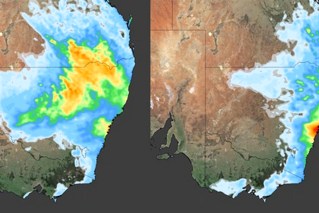A new report from Vodafone has revealed the extent of Australia’s phone and text scam problem, with 80 per cent of people surveyed saying they have been a victim.
The State of Scams Report, released on Wednesday, showed 33 per cent of people were contacted by a phone scammer once a week, and 38 per cent of people came into contact with an SMS scammer each week.
Simone Sant, general counsel and general manager of corporate security at Vodafone Australia. said education and awareness were important steps for the public to take to avoid online scams.
“If you’re not aware of scammers’ tactics, you won’t be ready to hang up on them when they target you,” she said.
“If we can help educate people about the common tricks used by scammers, then the success rate of these attempts will collapse.”
She suggested using a ‘three-S’ approach developed by Vodafone to help identify suspicious calls and texts, by scrutinising unfamiliar numbers, names or addresses; staying alert to strange or unusual requests for financial personal information, and seeking out official phone numbers and websites when SMS or callers say they are from a specific organisation.
Reporting scams
About 75 per cent of those surveyed did not contact the police and 49 per cent did not report the incident to Scamwatch.
Ms Sant said Vodafone’s research didn’t go into the reasons why people avoid reporting being scammed to the police, but it’s often because victims “are somewhat ashamed when they are tricked”.
“The fact that our … report shows most people are being tricked into losing relatively small amounts, between $10 and $49, could also explain why people are under-reporting scams,” she said.
“It is critical people report to the police or Scamwatch when they have been victim to a scam so authorities and organisations can better track and block scams that are emerging.”
Some 82 per cent of people surveyed had been victims of an SMS scam and 74 per cent reported being a victim of a phone scam, with most targeting personal information or money.
Dr Lennon Chang, Associate Professor of cyber risk and policy at Deakin University, said many people don’t realise until well after the event that they’ve been scammed.
“They don’t think it makes any sense to report it to the police because they don’t keep any of the evidence,” he said.
“Otherwise, the amount scammed might be quite small and they don’t think the police can help them.”
Any scam is worth reporting
According to the report, the most common amounts of money lost in a scam were between $10 and $49 (44 per cent), between $50 and $99 (14 per cent) and between $100 and $199 (13 per cent).

Most scam victims lost less than $100, the report revealed. Photo: Getty
Of those surveyed, 5 per cent reported losing between $1000 and $4999, 2 per cent lost between $5000 and $9999, and 2 per cent reported losing more than $10,000.
Dr Chang said criminals, often from outside the country but targeting Australians, use phone and text scams because it is a cheap way to make money illegally.
“There was the suggestion in the old days that scams are quite simple, but now we see that they are very well designed,” he said.
“We see a lot of scams targeting specific groups of people. For example, migrants or international students and I would say that this part has been ignored.”
He said government educational materials should include other languages and be spread on different channels for the diaspora community.
“One thing I always want to do is eliminate victim blaming because one of the reasons people don’t speak up or report to the police is because they feel it’s a shameful event,” he said.
“A lot of people would laugh at them and say how can you be so stupid to fall for this type of scam, but a lot are now very well crafted and people can fall victim to them even when people are careful.”
Combating scams
The Australian government launched the National Anti-Scam Centre in July, bringing together experts from government and the private sector in an effort to combat scams.
In 2022, Australians reported losing $3.1 billion to fraud and scams, an 80 per cent rise from 2021.
Some countries, like the United Kingdom, have legislated requirements for banks to refund people who have been victims of scams, ensuring action by financial institutions.









